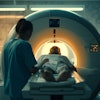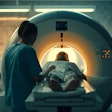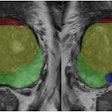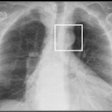
LONDON (Reuters), May 23 - Patients receive better public healthcare nowadays, despite the closure of a third of Britain's hospital beds over the last 20 years, according to a report on Monday.
Politicians and the media are wrong to focus on bed closures to gauge the state of the National Health Service, said the NHS Confederation, which represents bosses of a range of statutory health service organizations.
But opposition parties and unions described the report as a smokescreen, designed to hide how health chiefs are being forced to close wards to save money.
The Conservative Party said the NHS faces a financial crisis, despite increased government spending, while the British Medical Association said operations were still being cancelled due to a bed shortage.
The Confederation acknowledged that bed closures "cause emotions to run high," but said advances in drugs, working practices, and surgical techniques mean patients don't always need long stays in hospital.
"An obsession with bricks and mortar, as opposed to the actual treatment and service we provide, will not help us improve the NHS for patients," the report concluded.
"A patient's time is not free," it added. "We should not keep them in hospitals just because this suits the way that hospitals have historically functioned."
It said fewer beds are needed because patients are spending less time in hospital.
They often go in on the day of an operation and leave sooner, thanks to less invasive techniques such as keyhole surgery. New drugs and technology mean more can be treated at home.
The number of hospital beds has fallen in the last 20 years by 31% from 211,617 in 1984 to 145,218 in 2004, the report said.
Conservative health spokesman Andrew Lansley blamed the government for a cut in bed numbers.
"The report should not provide a smokescreen for the consequences of the government's financial crisis in the NHS," he said. "Bed closures are happening to cut hospital deficits, not in response to changes in the model of patient care."
The Patients Association, a charity which campaigns to improve health services, said there were "huge concerns" over how a fast turnaround of hospital beds can lead to infection.
The British Medical Association, the professional body for doctors, welcomed the treatment of patients as day cases.
"However, we should not lose sight of the fact that in many parts of the NHS, operations are being cancelled because of a shortage of beds," a spokesman said.
Health union UNISON linked the bed losses to government deals with private firms to build and run hospitals under Private Finance Initiative (PFI) schemes.
"Bed losses since 1997 are not attributed to improving the way we treat patients but more with cost-cutting measures as a result of the PFI," the union's Head of Health Karen Jennings said.
Last Updated: 2006-05-22 12:54:53 -0400 (Reuters Health)
Related Reading
One in four U.K. health staff bullied by patients, May 22, 2006
Copyright © 2006 Reuters Limited. All rights reserved. Republication or redistribution of Reuters content, including by framing or similar means, is expressly prohibited without the prior written consent of Reuters. Reuters shall not be liable for any errors or delays in the content, or for any actions taken in reliance thereon. Reuters and the Reuters sphere logo are registered trademarks and trademarks of the Reuters group of companies around the world.
















